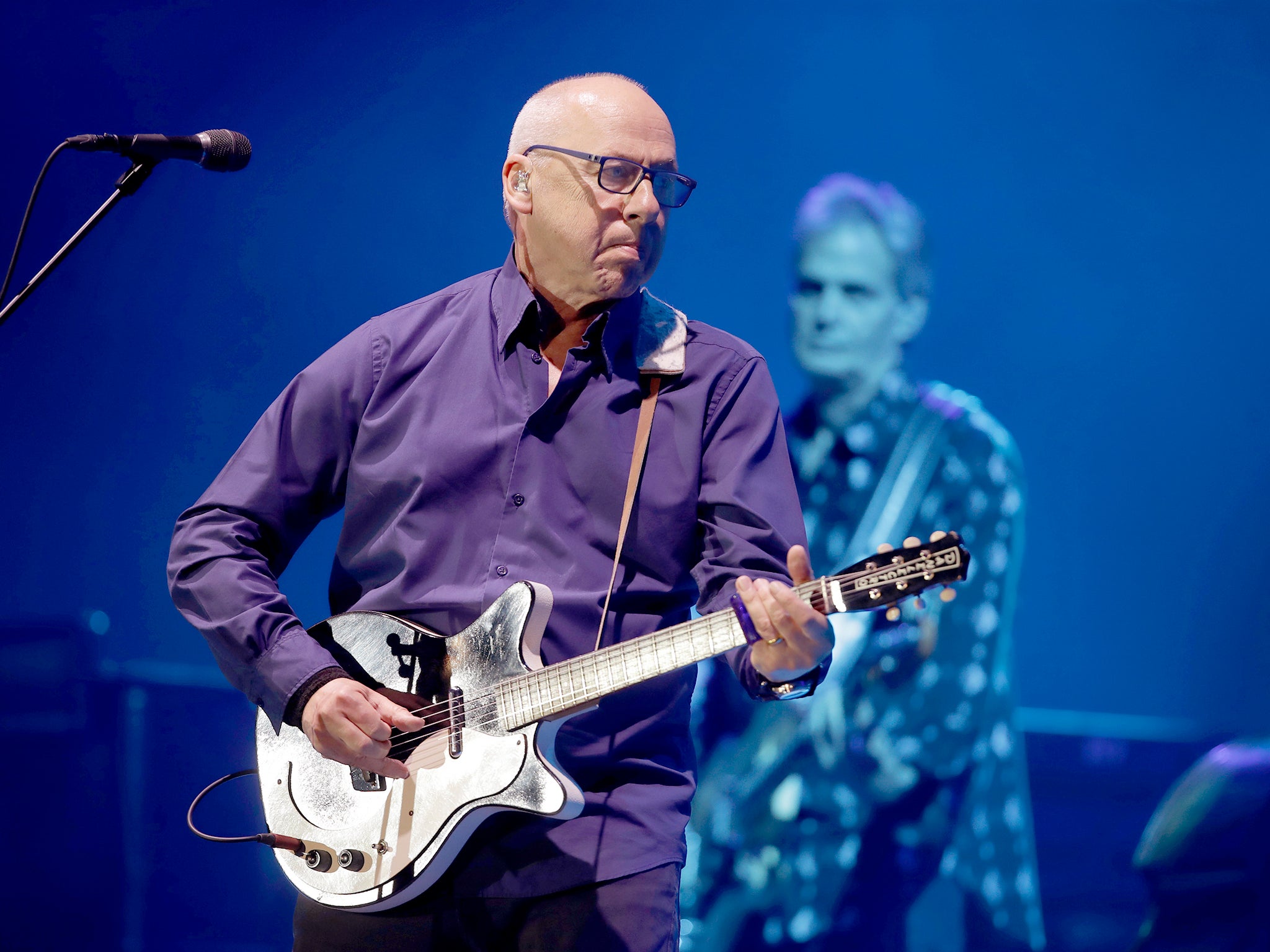Mark Knopfler auctioning guitar he played on Dire Straits song ‘Money For Nothing’
Grammy-winning artist says he has ‘more than enough’ instruments left over after collecting hundreds during his 50-year career
Your support helps us to tell the story
From reproductive rights to climate change to Big Tech, The Independent is on the ground when the story is developing. Whether it's investigating the financials of Elon Musk's pro-Trump PAC or producing our latest documentary, 'The A Word', which shines a light on the American women fighting for reproductive rights, we know how important it is to parse out the facts from the messaging.
At such a critical moment in US history, we need reporters on the ground. Your donation allows us to keep sending journalists to speak to both sides of the story.
The Independent is trusted by Americans across the entire political spectrum. And unlike many other quality news outlets, we choose not to lock Americans out of our reporting and analysis with paywalls. We believe quality journalism should be available to everyone, paid for by those who can afford it.
Your support makes all the difference.A 1983 Les Paul used on the hit song “Money for Nothing” is among the 120 guitars and amps being auctioned by Dire Straits musician Mark Knopfler.
The Grammy-winning singer-songwriter, 74, is donating 25 per cent of the proceeds from the auction to charity, but admitted that he might be tempted to treat himself to a few more guitars, as well.
“There's every danger of that,” he told the BBC. “I guess I'm not impervious to temptation. It's quite possible I can have my head turned. In other words, what have I learned? Not a lot.”
Knopfler, widely regarded as one of the greatest guitarists of all time, decided to part with the guitars – collected during a career spanning 50 years– because he has “more than enough” left.
“We've had great times together, so I am sad to see some of them go - but I've got enough left to play. More than enough,” he said.
Other gems in the collection include a 1959 Gibson Les Paul with a sunburst finish, known as the “Holy Grail of electric guitars”, which could fetch up to £500,000. Knopfler is also auctioning the first guitar he ever owned: a twin-pick-up Höfner Super Solid that his father bought for him for £50 in the early Sixties.
Born in Scotland but raised in Newcastle, England, Knopfler first fell in love with the guitar after he heard performances by Elvis Presley and Hank Marvin.
He formed Dire Straits in 1977 with his younger brother, David, along with bassist John Illsley and drummer Pick Withers, achieving global fame with their 1985 album Brothers in Arms and its singles including “Walk of Life” and “Money For Nothing”.

Dire Straits disbanded in 1995. Knopfler, who has also collaborated with greats such as Bob Dylan, Paul McCartney and Emmylou Harris, went on to release a number of successful solo albums, including 2004’s Shangri-La.
His guitar collection will go on display in New York and London before the sale at Christie’s takes place on 31 January.
Proceeds will go to charities including the Red Cross, and children’s charity Brave Hearts of the North East.
Knopfler’s former bandmate Islsley recently revealed that Dire Straits’ former manager Paul Crockford is regularly offered “huge amounts” of money to get the band back together.

“Every time we have lunch [he] says to me, ‘I wish people would stop offering me huge amounts of money to put [Dire Straits] back together,’” he told The Telegraph.
Reflecting on the band’s split, Illsley said he was “pretty happy” when he realised “things were coming to an end” due to feeling “mentally, physically, emotionally exhausted”.
“Most of our marriages were falling apart, we weren’t seeing our children very much – it was all wrong. It’s the usual things that can happen to people in bands,” he said.
However, he admitted that he still had to keep reminding himself that the split had been a good idea.
“Because you’re doing something else, completely different – I was in London studying painting, I got some lessons, made a terrible mess for seven or eight years, and then started doing art shows. I thought, ‘OK, this is fun’. And I stopped playing music for quite a while.
“I leant the bass against the wall and said ‘Thank you very much but I’m doing something different now’.”

Join our commenting forum
Join thought-provoking conversations, follow other Independent readers and see their replies
Comments